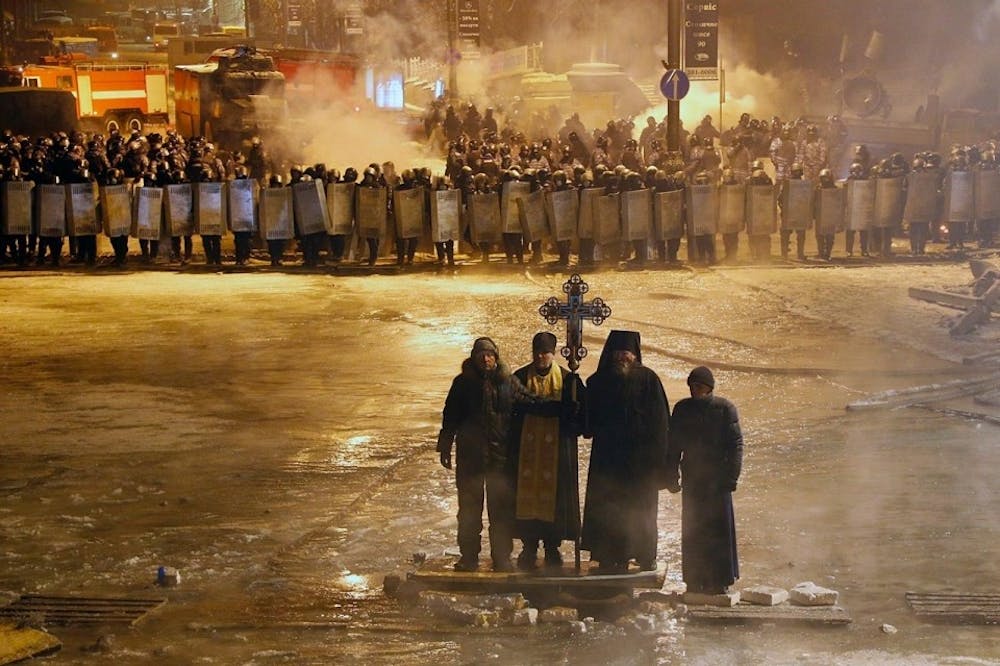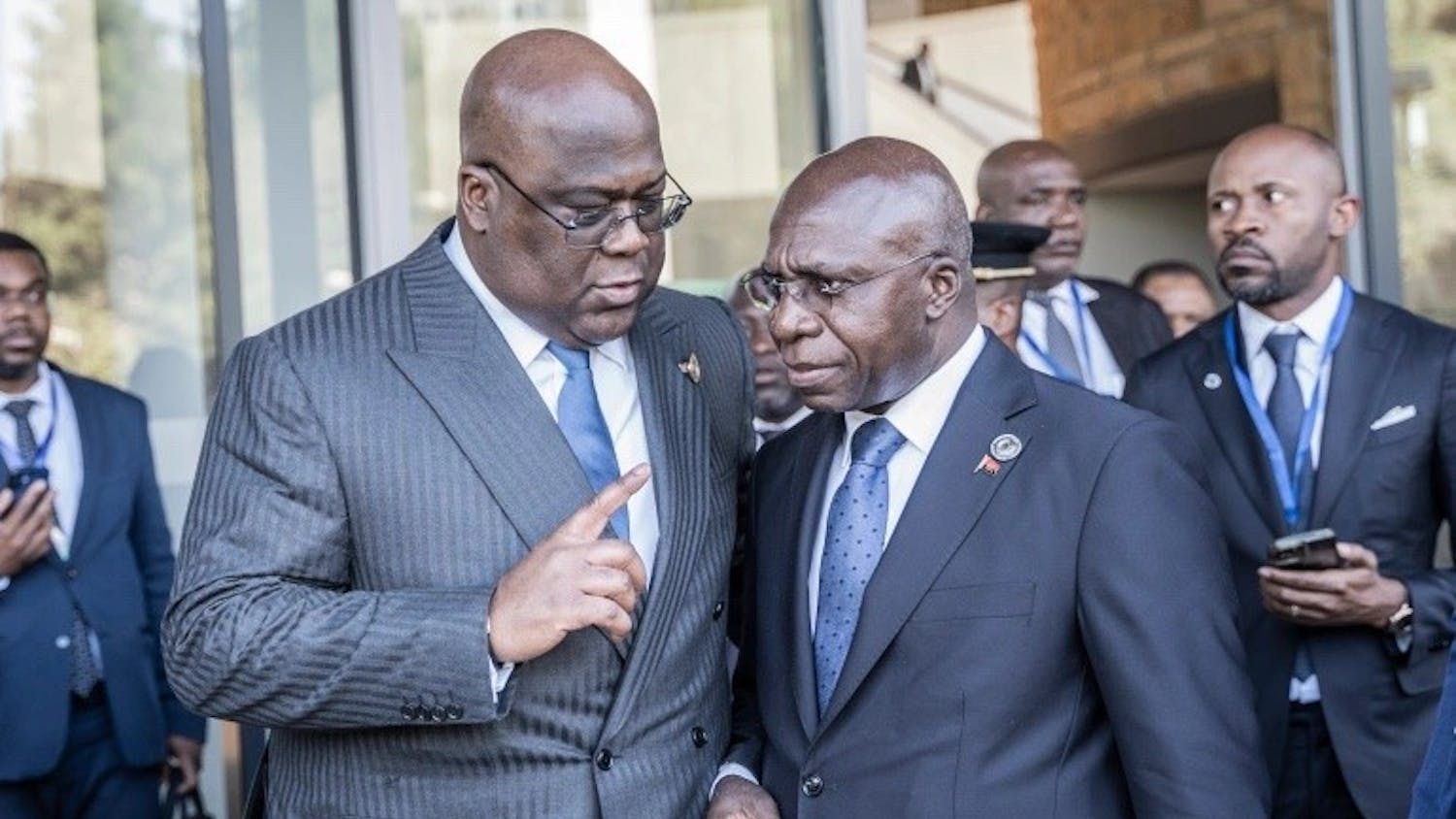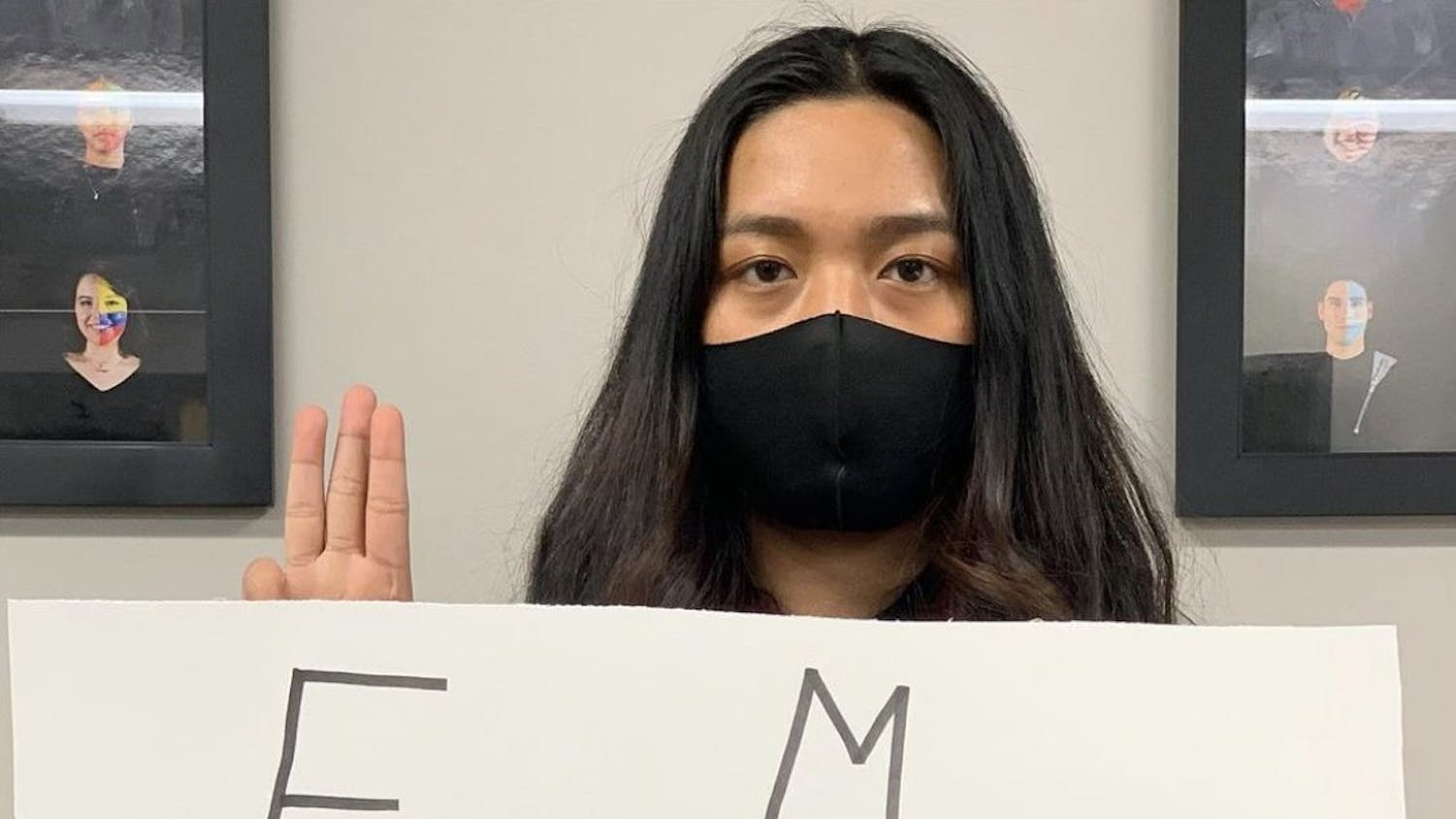By E. Patrick Neer | Echo
A boxing heavyweight champion-turned-politician, a right-wing nationalist and a former government minister. In any other part of the world, this could be the setup of a lame joke, but in Ukraine, these three men are the faces of the anti-government opposition movement in a series of violent protests that have consumed the country since November.
Ukraine backed out of a deal in November 2013 that sought to integrate six former Soviet republics (Ukraine, Belarus, Moldova, Azerbaijan, Armenia and Georgia) into the fringes of the European Union, according to Al-Jazeera. This agreement offered a framework for trade agreements and eventual EU membership to these border countries, provided that a list of reforms were enacted in each country.
Ukraine's president, Viktor Yanukovich, cut Ukraine from the Eastern Partnership in November 2013, claiming that the benefits of further European integration weren't worth the costs that Ukraine would incur by alienating Russia. He later defended this claim in a televised interview, saying the monetary assistance that the EU offered paled in comparison to what the struggling Ukrainian economy needed, the Wall Street Journal reported."What kind of agreement is it if they take us and bend us? I, for one, think we shouldn't give in, we should defend our own interests," Yanukovich said.
Yanukovich's decision drew crowds of anti-government protestors to Kiev, culminating in massive rallies in the capital's Independence Square, according to Al-Jazeera. And this isn't the first time that Yanukovich's presidency has faced public scrutiny. As one of the inaugural acts of his presidency in 2010, he arrested Ukraine's former president and his long-time rival Yulia Tymoshenko on charges of abuse of power, according to Russia Times.
The Ukrainian people have plenty of reasons to be upset at their president, and it shows. The anti-government rallies have continued for nearly three months and call not only for the resignation of Yanukovich and his entire cabinet, but also for early elections and the repeal of recently passed anti-protest legislation.
Ukraine's opposition movement may not be the only one hoping for President Yanukovich's resignation. A phone conversation between the U.S. Assistant Secretary of State and the American ambassador to Ukraine was leaked on Friday, Feb. 4, which revealed that the U.S. might also be invested in finding Ukraine a new leader.
The call, commonly believed to have been leaked by Russian intelligence, revealed the American politicians discussing which member of the opposition they thought should replace Yanukovich as president, according to Politico.
Russia has used the call as proof for its accusation that the U.S. seeks to topple Yanukovich's democratically elected regime in order to weaken Russia and strengthen the EU, according to Reuters. The White House has not acknowledged the authenticity or discussed purpose of the call.
However, the Western response to the turmoil in Ukraine has consistently and overwhelmingly supported the opposition movement, according to BBC.
U.S. Secretary of State John Kerry came out in support of the Ukraine protests at the Munich Security Conference this month."Nowhere is the fight for a democratic, European future more important today than in Ukraine. The United States and EU stand with the people of Ukraine in that fight," Kerry said.
The opposition movement against Yanukovich's government is led largely by three figures: Vitali Klitschko, Arseniy Yatsenyuk and Oleh Tyahnybok. Each of these men brings a different attitude to the opposition coalition. Tyahnybok and Yatsenyuk both served in the Ukrainian government in the past, and have condemned the violence both toward and perpetrated by protesters. Klitschko, on the other hand, is brash and combative, calling for protesters to go "on the attack" if governmental concessions are not made, according to Al-Jazeera.
Klitschko, heavyweight boxing champion and opposition leader, is not prepared to back down from the demands of the opposition he represents, according to the Washington Times.
"We want to be a modern European country, live with a secure future. Without a fight there's no victory. Therefore, we must fight," Klitschko said.Thumbnail courtesy of Al Jazeera.





